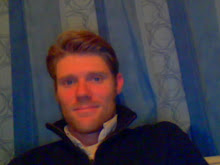I'm super excited to finally be blogging! I hope the content on this site is useful and timely. The purpose of this blog is to facilitate an open-ended discussion about the future of our species; our habitat, and our culture. I want to create an online dialogue with readers to address the most pressing challenge of our time, which I feel is summed up well by the phrase on my homepage:
"there are too many of us, using too much stuff too fast."
About This Site
This blog will explore how our collective response to current ecological constraints can build stronger communities, create more ethical economies, and restore balance to our lives. The body of work presented here comprises an ongoing cultural analysis of American life. The main thrust of this analysis is to assess the sustainability of our current life-ways and to highlight more adaptive alternatives to current patterns of resource use. The ethical values underpinning much of this work derive from the deep ecology, voluntary simplicity, and appropriate technology movements.
Because the focus of this site is both an assessment of problems and an exploration of solutions, some posts will simply detail the nature and scale of our environmental challenges. Of the topics discussed in these posts, peak oil and climate change will get the most attention, but I will also cover deforestation and soil erosion, loss of biodiversity, overpopulation, and pollution. However, the majority of my posts will be solution oriented. The chief goal of this site is to empower individual households to take meaningful action in response to the full range of challenges discussed here. So practical solutions will be my central focus.
I believe that the informed action of individual households is a powerful model of change for the larger community. There is great revolutionary potential in the momentum of these changes occurring simultaneously in communities all over the world. This is grassroots social change in action! It all starts with the creation of visible alternative models in the community; the seminal element of every popular revolution in history is activism at the level of the household/local community.
Many useful alternative models of human settlement and resource use already exist. Perhaps the most well known and comprehensive is permaculture design, which emerged in the late 70s with the publication of ‘Permaculture One’ by Australian ecologists Bill Mollison and David Holmgren. Permaculture represents a broad-based holistic strategy of achieving ecological sustainability through observant, thoughtful design. It is a system for constructing human habitats that ‘fit’ into the larger ecosystem in every sense.
Other models include natural building, homesteading/self-sufficiency, ecovillage and cohousing settlements, small scale renewable energy, and voluntary simplicity. On the homepage there are links to learn more about each of these topics. Modern information technology has facilitated the rapid spread of these alternatives by enabling communities to exchange ideas and practical knowledge quickly and easily. My goal is for this website to further that amazing diffusion of ideas, so that more people can jump for joy into this lifeboat called utopia.
Friday, November 7, 2008
Subscribe to:
Post Comments (Atom)




2 comments:
Excellent, Ryan! This is a worthwhile endeavor and I hope to be a regular contributor.
My main concern, at the moment, is that the drop in oil prices will curb the enthusiasm for alternative forms of energy. Just a few short weeks ago we were all ready to begin driving electric cars. Those who bought Hummers when gas was $4 a gallon in the US are now vindicated. While I can't beef about paying less at the pump, I was most excited about a market driven move toward less use of fossil fuels. The market is a powerful force and I suspect...have deep suspicions...that the drop in gas prices is the manipulation of big oil. While they won't make record profits they made at $4 a gallon, they will keep us under their thumb by cooling the call for alternatives.
Dusty
Hey Dusty! Your comment is my first. Thanks for contributing.
I share your concerns about the adverse effects of cheap oil on our political will to pursue alternative energy. I think it is a dangerous time to be complacent, and if we learned anything from the housing bubble, it’s that price does not always accurately reflect the true market picture. Consumers and producers have to be well-informed for prices to be accurate. And right now I don’t think anyone has a very clear understanding about the future of global oil supplies.
At the moment, recession fears have pushed the speculators out of the futures market, and oil prices have fallen through the floor because of slumping demand in the advanced economies. Prices may stay suppressed for the duration of this recession (unless OPEC slashes production). But I believe volatility in the oil market is here to stay. During the 2 week stock market crash on Wall Street last month, there was a day when oil prices spiked $25 in one day! Stable, low oil prices are a fantasy in the long run.
The reality is that oil is becoming the new gold. It's a currency with universal value. When the market fundamentals of supply and demand push the oil price up even moderately, speculative capital floods into the futures market to make a quick profit. We can expect this every time oil rises, which could happen without resurgent demand if supplies decline fast enough. When it does go back up, I hope we have an open public debate about what's causing the unprecedented volatility in the oil market. When we realize that scarcity is making oil vulnerable to these damaging price swings, maybe we will get serious about adopting an Oil Depletion Protocol to manage the most valuable dwindling resource on the planet.
Ryan
Post a Comment